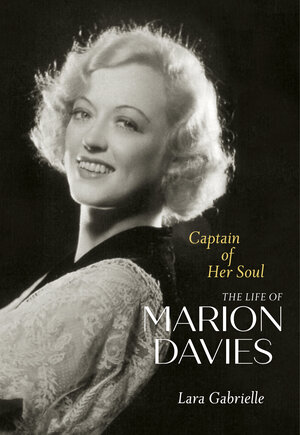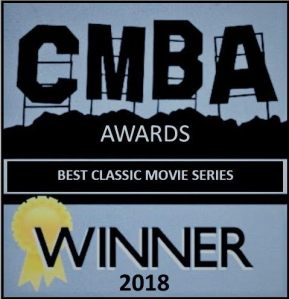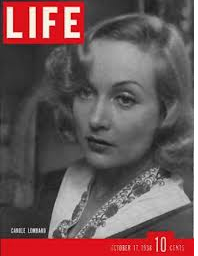Olivia de Havilland died peacefully in Paris on Saturday.
She went the way we all strive to go–in her sleep, having recently celebrated her 104th birthday. Her daughter Gisèle had just been over for a visit. She was loved and adored not only by a wide circle of friends and family, but by fans all over the world. She knew it, and she felt it always. In short, she left this world a happy, fulfilled woman surrounded by love. The fact that this is how it happened for her fills my heart.
With that said, yesterday was a very strange day for me. Olivia de Havilland has been a bedrock of my life for many years. From Backlots’ earliest days, Olivia de Havilland’s life and career has been a source of fascination, inspiration, and admiration. She lived a life filled to the brim with experiences most of us can only dream of, and I viscerally feel her loss–as though there is something missing in the world now.
Her accolades are well-documented. Five Oscar nominations and two wins, the first female president of the Cannes Film Festival jury, and a woman of strength and backbone unafraid to stand up for what was right. She was a recipient of the Legion d’Honneur, and received damehood in 2017. She earned vast respect, gratitude, and admiration from legions of fans and members of the entertainment industry. “We all owe Olivia a great deal,” said her sister, Joan Fontaine, in an interview in the 1970s. Indeed, Olivia changed the industry forever with her landmark suit against Warner Bros., singlehandedly striking down a longstanding contractual practice that amounted to involuntary servitude.
Her triumphs are in spite of, or perhaps because of, a life that was not always smooth sailing. From the very beginning, there were bumps in the road that she had to navigate, and challenges that seemed insurmountable. The pressures of early fame and her problems with Warner Bros. affected her psychologically–she developed anorexia and struggled with food for many long years afterward. Her first marriage, to writer Marcus Goodrich, was unhappy and violent. She lost her son, Benjamin, to the effects of Hodgkin’s Lymphoma treatment in 1991.
In many cases, the clarity and levelheadedness with which Olivia met these challenges paved her path to better days. Her landmark suit against Warner Bros. took on the practice of adding suspension time onto a 7-year contract, hinging on a then-obscure California law interpreted to mean that an employer could not hold an employee for more than 7 calendar years. She won, and the case is now a hallmark of entertainment law. It has been cited in such varied industries as sports, music, and writing, and by personalities such as Jared Leto and Johnny Carson.
Following her divorce from Marcus Goodrich, in which she was granted sole custody of Benjamin, Olivia took him to live with her in France, turning over a new leaf far from the stresses that she faced in Hollywood. She bought a house at 3 Rue Bénouville in the 16th arrondissement of Paris, which remained her home until her death. She married a Frenchman, Pierre Galante, with whom she had her daughter Gisèle. Though they amicably separated in the 1960s, Olivia and Pierre remained great friends. While Gisèle was growing up, they remained in the same home to provide Gisèle stability, and Olivia cared for him on his deathbed in 1998.

Her move to France allowed Olivia to explore her other interests (which were many), free from the scrutiny of gossip columnists and other Hollywood onlookers. She was able to work when she wanted to, and stay home when she wanted to. This contributed to her happiness, sense of normalcy, and, I believe, her longevity. When Benjamin died, Olivia turned in her grief to the American Cathedral in Paris, a “radically inclusive” Anglican community not far from her home. The Cathedral became a mainstay in Olivia’s life as she came to terms with the death of her child, and she became an active part of the community, often taking on “lay-reading” responsibilities at holidays.

She spent her last years in remarkably good health for a centenarian, and celebrated her 101st birthday by filing a lawsuit against Ryan Murphy for her portrayal in the docudrama Feud. The case, about which I wrote extensively, was based on fictitious elements that were written into Olivia’s character that were misleading to the public. The suit went through the legal system all the way up to the Supreme Court, where it was ultimately declined.
I was fascinated by the trial, and as longtime readers know, Backlots covered it meticulously. This site frequently broke news on the case, and I was present in the courtroom as the case was argued on appeal. Last summer I went to Oxford with the legal team (and Olivia’s family) to attend their lecture on the intricacies of the case.
While the Supreme Court’s decision not to take the case was disappointing, Olivia had made her point–that truth and respect should always prevail where real people are involved.

With Gisèle.
In a short interview in 2011, Olivia was asked about the most important things in life. Her response was indicative of the way she lived–the two most important things, she said, were love and laughter. “It is ‘to love,'” she clarified. “One must love.” Her smile lit up her eyes and her laugh was lilting and loud, reminiscent of her mother’s. Her sense of humor was extraordinary–intelligent, quick, and often quite bawdy.

I impart this information firsthand. I met Olivia in March of 2011 at a screening of I Remember Better When I Paint at the American Library in Paris, and she was everything I had heard she was. Dignified, classy, and articulate, a woman who loved people and valued their company. I heard that lilting laugh, as she realized with delight that my friend Sara and I both had a copy of her long out-of-print memoir, Every Frenchman Has One. As we spoke, she held my hand in hers, which felt so natural and gentle that I felt my palm melt into hers in reciprocation. It was a lovely moment that I cherish.
Olivia was not a big woman physically, but she dominated a room with her presence. Her voice, different in person than on the screen, was unlike any other that I have ever heard. When she stepped up to the podium to introduce I Remember Better When I Paint, I remember the precise moment when she began to speak. I audibly gasped at the beauty and uniqueness of that voice, which I frequently describe as “like melted chocolate.” It was perfect for the stage–deep and rich, carrying easily to the back of the room. To this day, it echoes in my ears every time I think of that evening.

I toasted Olivia last night with a glass of champagne and a screening of A Midsummer Night’s Dream (1935). The role of Hermia in Max Reinhardt’s production was very close to Olivia’s heart, that role having launched her career both onstage and in film. It seemed to me a fitting bookend to watch it yesterday, as I remembered all the joy and gladness she has brought to my life, and the lives of all who loved her. I bid Olivia goodbye with one of Hermia’s lines, in Act II, scene ii of A Midsummer Night’s Dream:
“Good night, sweet friend: Thy love ne’er alter till thy sweet life end!”










































_03.jpg)

